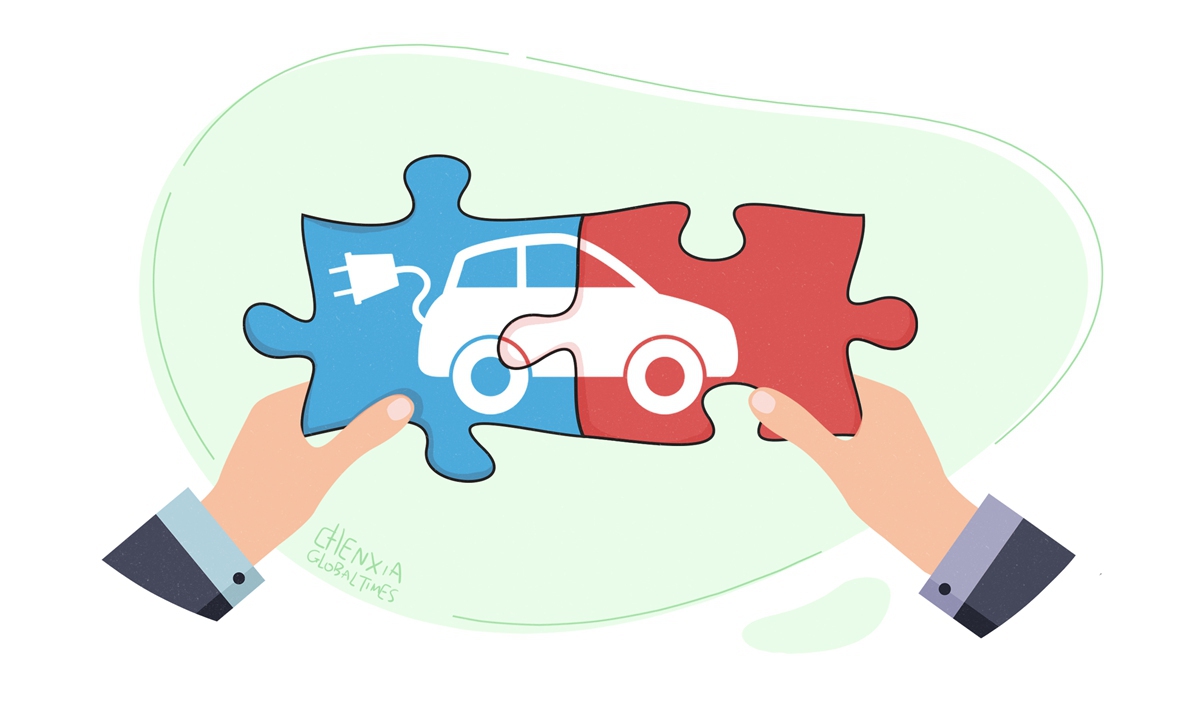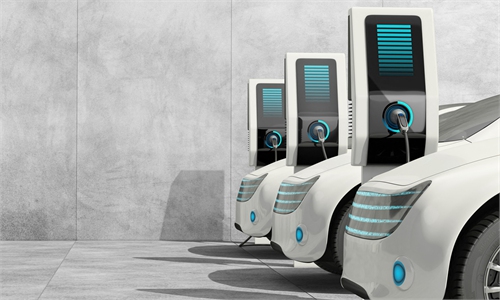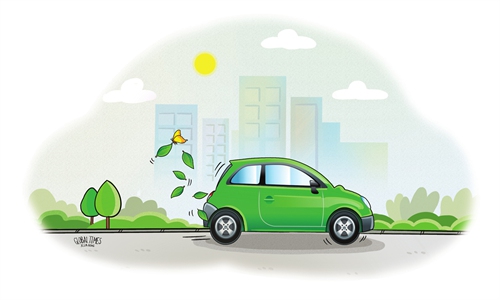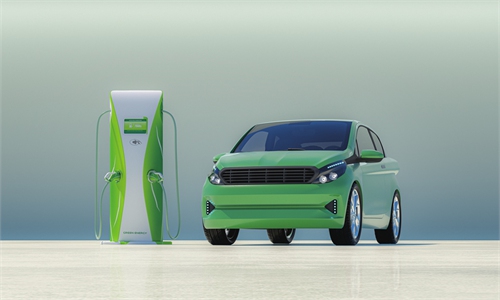
Illustration: Chen Xia/Global Times
There have been calls in the US and Europe to reduce China's advantage in electric vehicle (EV) batteries. But China's supply-chain advantage in this area has become so important for the global EV industry that giving up that edge could put a country's development of its own EV sector at an obvious disadvantage.Maybe that's why UK Business and Trade Secretary Kemi Badenoch said that her country won't impose import restrictions on those products from China.
When asked whether the UK was overly reliant on China for its EV supply chain, Badenoch said on Monday, "At the moment, China is leading on this technology, so we wouldn't be able to get to where we want to get to on net zero by completely stopping or banning Chinese products ... You can't exclude Chinese-made products from the battery ecosystem."
Despite what Badenoch said, it doesn't mean that Chinese-made EV batteries will not face any trade barriers when entering the UK market, given the "rule of origin" requirements for electric cars in the EU-UK post-Brexit trade deal. Under the deal, starting from next year, carmakers could face tariffs of 10 percent on EV exports to the EU if at least 45 percent of the value of an electric car's components and 60 percent of its battery don't come from the UK or EU.
Badenoch's response was more like an attempt to consolidate carmakers' confidence in the supply chain. It is no secret that the UK government has been looking for ways to boost its domestic EV and battery industries, but the problem is that it is struggling to attract such investment, especially from foreign companies, as the UK has lagged behind China and the US in terms of EV-related industries.
Under such circumstances, any negative signal to Chinese battery suppliers would constitute another source of risks to the development of the UK's domestic EV industry. This is because Chinese companies account for more than half of the EV battery market and satisfy as much as 90 percent of demand for some battery materials, according to Bloomberg NEF.
Such economies of scale have allowed Chinese manufacturers to outperform US and European rivals, which is probably why when the US and European EV industries are still dependent on increasing subsidies, while Chinese manufacturers, especially those on the battery supply chains, have already shifted from being entirely subsidy-driven to being market-driven.
In this case, if a country really shuts Chinese batteries out over geopolitical reasons or fear of competition, then its domestic EV companies will probably face higher costs and slower development due to insufficient domestic supplies. The logic applies not just to the UK, but also Europe as a whole.
There are many concerns in the EU about excessive reliance on Chinese electric cars and components like batteries, with some following the geopolitical thinking of the US.
As a result, concerns are rising when it comes to Chinese electric cars and batteries entering the European market. For instance, last month, the EU's Batteries Regulation entered into force, which stipulates how batteries are collected, reused and recycled to a high degree in Europe. This is seen as one of the newest thresholds for Chinese carmakers and batteries in going overseas.
Of course, it is reasonable for the EU to safeguard its own supply chain stability and economic development, but it should be advised that to achieve the goal of promoting EV development, the EU needs to follow rational voices that are based on the judgment as to whether it is conducive to promoting green development, rather than being derailed by protectionism or geopolitics that will only backfire.




